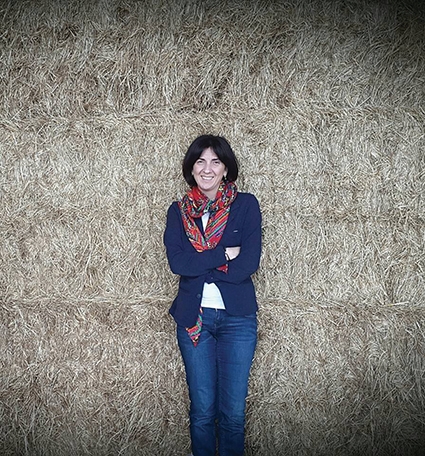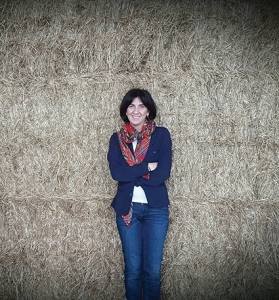Farmers’ Association: “The Farmer is our Patriot”
Seven years ago, businesswoman Nino Zambakhidze got an unusual call from her business partner. He was in the countryside, he was drunk, and he’d just bought two cows.
From that moment, Ms. Zambakhidze’s life began to follow a different path. Today she is the chairwoman of the Georgian Farmers’ Association, an organization she founded after encountering first-hand the difficulties facing the county’s agricultural sector today.
Georgia Today sat down with Ms. Zambakhidze to talk about the Farmers’ Association. We’ve let her present herself in her own words, with only mild editing for clarity.
On how to define a Farmer
The question is, what is a farmer? Because we don’t have that definition in Georgia. Even in the Georgian Constitution the farmer has been named a ‘peasant.’
Based on our history, a peasant was someone who didn’t have proper education. He was hired because he couldn’t do any intellectual things, just dig and plant. So if you’re going to call me a peasant, I’m not going to accept that. That’s why we decided just to destroy that term and call them farmers - but we don’t have an exact definition of what a farmer is!
Even in my Association we have that issue. Because if you have one hectare of land and you have a greenhouse, you are one of the biggest farmers around. But if you have one hectare of land and an apple orchard, you cannot be called a big farmer. So it’s even hard to tell you how any definition can be justified.
So we just call them all farmers - because they call themselves farmers. We don’t want to abuse anybody, and, after all, they are certainly not peasants.
On what the Farmers’ Association does
Right now we have 1,300 members all over Georgia and we have three main directions.
One is to act as advocates for farmers; to be a ‘middleman’ between farmers and the government. 49% of the population is engaged in farming. To count, more or less, that’s 800,000 people. And we decided to consolidate all problems that the farmers are having in the regions, and to communicate in a proper way with the government so that the government will be able to fix the problems. They simply cannot do it separately for each farmer.
The second thing that we do is to help farmers connect to the market – with all those supermarket chains, hotels, restaurants, and cafes coming and asking for local production.
We’re helping the farmers to sell their products to these buyers. In this case the middle-man jumps out, and the farmers have much more profit margin on their products.
And third, we’ve started up a media team – TV, journals, newspapers – and we are publishing the success stories and failures of our farmers. And at the end it came out that while we were promoting farmers, the quality of those farmers’ products also become higher. Because they were well-known, they were using less pesticides and fewer fertilizers. So, let’s say, we shot these two rabbits with one gun. The farmers became famous, and they increased the quality of their products.
On what needs to change
One major problem we’re facing is that we don’t have land registry. We don’t know what is state-owned, and what is owned by individuals. It might be that an individual has 4 or 5 hectares, but is not registered as such. He considers it his, but the state believes it is state-owned.
This has to be a priority for the country. You have to register land, first in order to know what you own, second in order to be able to manage the land.
We say Georgia is an agrarian country, but it’s NOT, not at all. We have the ambition to be an agrarian country, but we’re not. We are a country with a lot of problems.
On hope for the coming year
My biggest hope is that farmers will get a proper education. Farmers have to have the opportunity to get the financial resources they need to start businesses. And that, step by step, problems like insufficient infrastructure, financial resources, insurance and education will be somehow satisfied.
Robert Isaf











